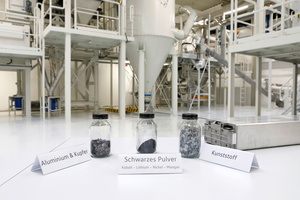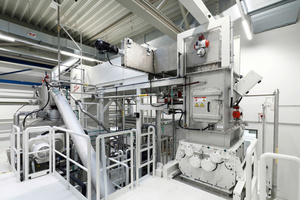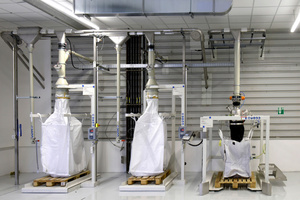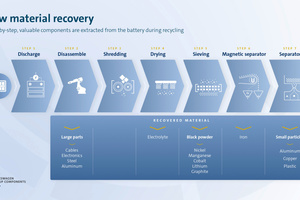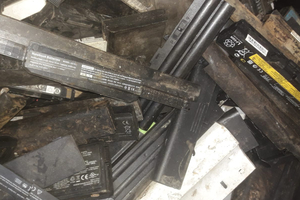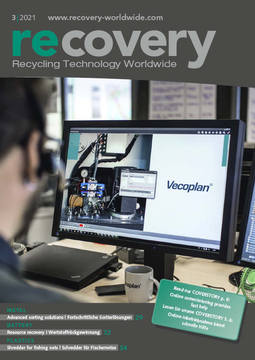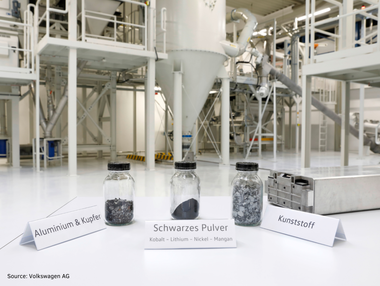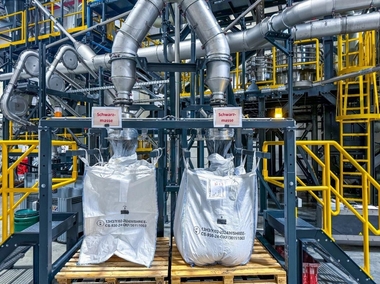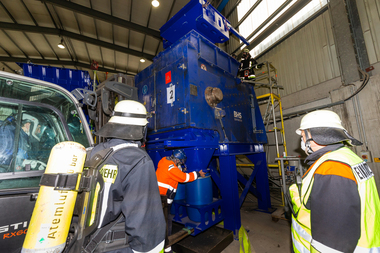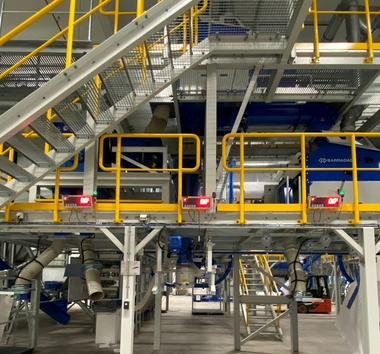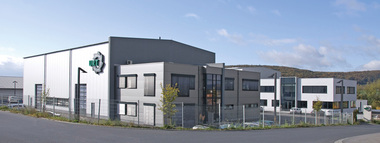Battery recycling with URT plant concept
„Our goal is to create our own cycle with more than 90 % recycling of our batteries,“ says Thomas Tiedje, Head of Technical Planning at Volkswagen Component. „We don‘t want to hand over the process at any point, but prefer to qualify our own employees and thus make them fit for the future.“
The special feature: only batteries that really can no longer be used in any other way are recycled. Before that, the modules built into the battery system are checked to see if they are still in good condition and can possibly be given a second life in mobile energy storage systems such as flexible fast charging columns or charging robots. This significantly extends the useful life of the modules.
The first plant for recycling end of life e-car batteries from an automobile manufacturer started operations at the beginning of 2021. This innovative plant was designed, built and delivered turnkey by the Bavarian plant manufacturer URT Umwelt- und Recyclingtechnik GmbH (URT) from Karlstadt.
For more than 25 years, URT has been involved in the construction of processing plants for electrical and electronic waste and supplies them worldwide. It is precisely this knowledge that can be incorporated into the processing plants for batteries, because URT is, for example, a specialist in shredding in inert atmospheres to prevent exothermic reactions, which can also occur during battery shredding. The aim of the plant is to separate the materials of a lithium-ion battery as well as possible so that each recyclable material can be used again in a new battery.
URT plant concept
The previously deep-discharged batteries are fed into a single-stage shredding process via a sluice system. Subsequently, the shredded total fraction enters a vacuum dryer, which evaporates the electrolytes, which are then condensed again and filled in liquid form. This process section, from shredding to dryer discharge, is encapsulated and kept inert by a nitrogen atmosphere.
The dry active material (black mass) is separated from the remaining components by sieving and filled. In order to meet the European recycling targets, the active mass must be almost completely separated. Partner companies from the chemical industry then separate the black mass into its individual components using a hydrometallurgical process, i.e. using water and solvents. These can be used as secondary raw material for the construction of cathodes of new batteries without any loss of quality compared to new, primary material.
Ferrous metals are separated from non-ferrous metals by magnetic separation processes. Anode and cathode foils are further components of the batteries that are separated in the plant. In addition to falling below the occupational exposure limits, the emission values are also below the TA Luft (Technical Instructions on Air Quality Control). This is ensured by a multistage exhaust air after-treatment system consisting of gas scrubbing and activated carbon adsorption. Plant concepts with exhaust air post-combustion are also conceivable.
Experience in battery recycling
Many plant modules that URT uses in battery recycling were developed by URT and have been in use for many years in other recycling tasks. In addition to shredding in a nitrogen atmosphere or exhaust air post-combustion, the various separation techniques are also part of these modules. Apart from Volkswagen, these techniques have also been used in other battery recycling plants. For example, URT supplied the shredding technology for the LithoRec II battery development project in 2014.
Market outlook
In addition to recycling plants for high-voltage batteries from electromobility, URT is also planning processing plants for batteries from electronic and electrical appliances, such as hand tools, laptops, e-bikes, e-scooters or mobile phones. Potential customers for battery recycling plants are recycling companies and battery manufacturers. With an export rate of over 90 %, URT is perfectly equipped to supply battery recycling plants worldwide.

